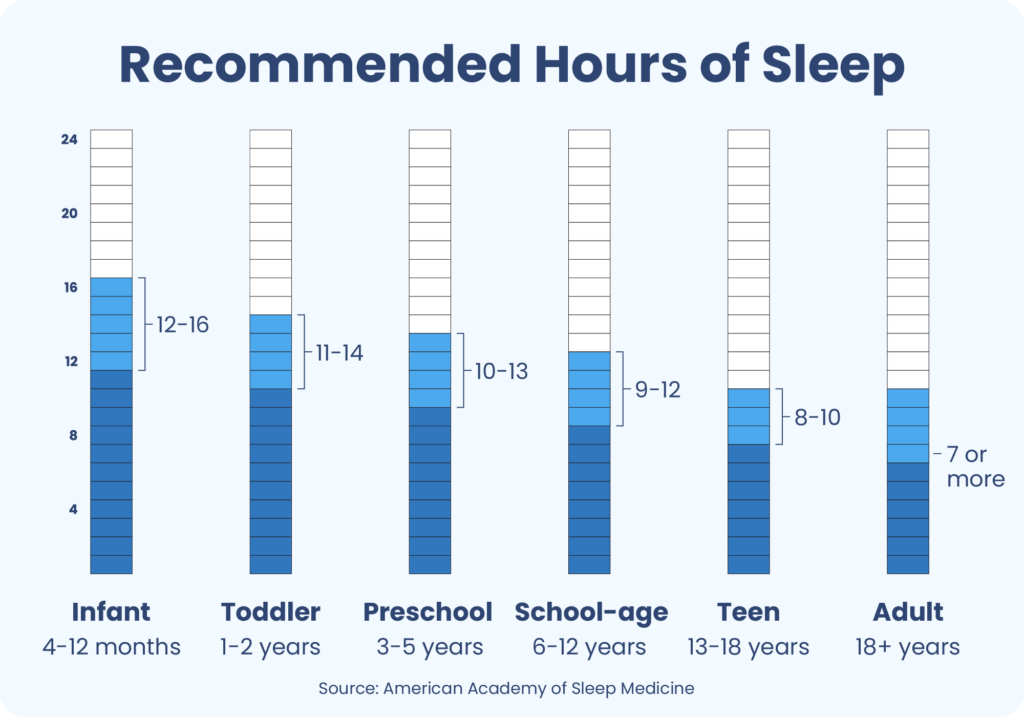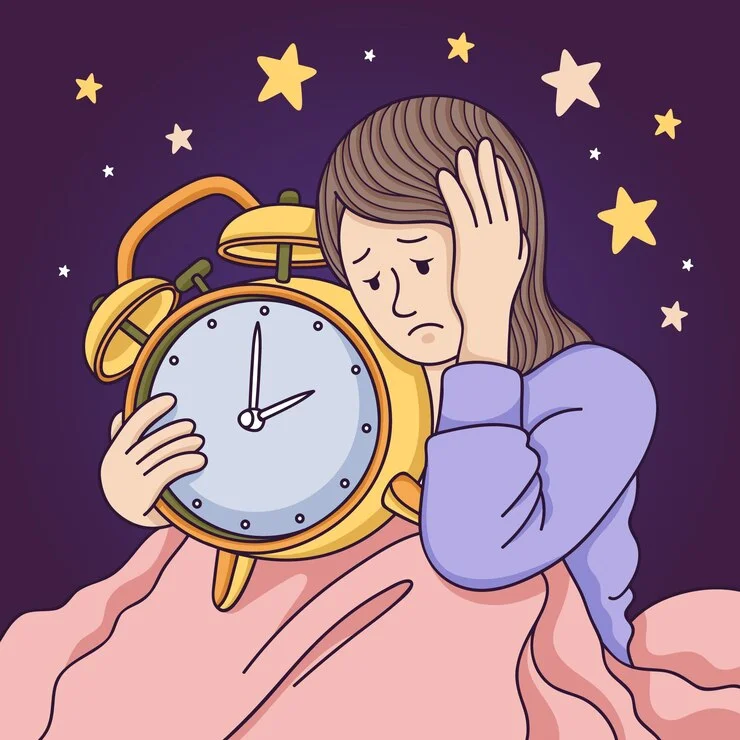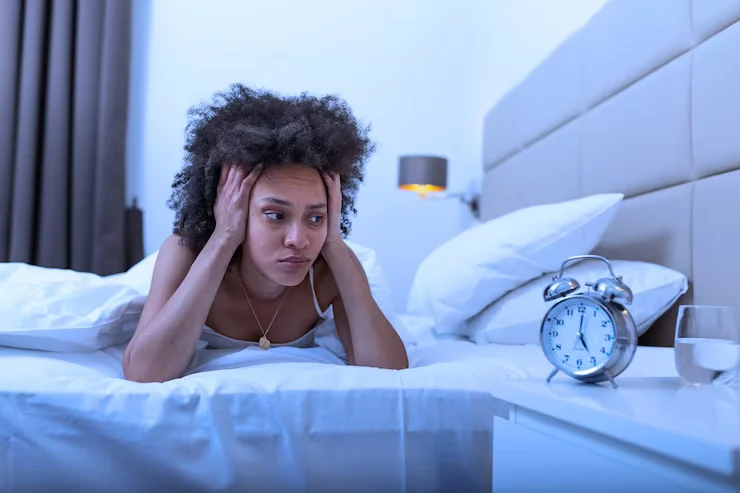Do You Often Waking Up Between 3 AM And 5 AM? This Is What It Means
If you find yourself waking up between 3AM and 5AM many nights a week, you’re not alone. Waking during this time frame often leaves people wondering why it’s happening and if it’s normal. Although brief night waking are common, regularly waking up during the early morning hours may point to an underlying issue.
Understanding the potential causes of waking between 3AM-5AM can help you prevent or treat the problem so you can get back to quality sleep. This thorough guide explains all the possible reasons, plus tips to fall back asleep faster.
Normal Sleep Cycles
To understand abnormal waking patterns, it helps to first comprehend how normal human sleep cycles work throughout the night. There are two main phases of sleep that alternate in cycles of about 90 minutes each:
- Non-REM Sleep: The first lighter stages of sleep with minimal dreaming. Includes drowsiness while falling asleep and deep slow-wave sleep.
- REM Sleep: Rapid eye movement sleep featuring vivid dreams and paralysis of arms and legs to prevent acting them out.
We typically enter our first REM phase about 90 minutes after falling asleep. After that, REM and non-REM continue to trade off across the night.
In addition to sleep stages, a biological clock within our brains manages the timing of feeling sleepy or alert across 24 hours, known as our circadian rhythms. For adults, peak sleepiness hits around midnight with a daytime alertness peak around 10AM.
With normal rhythms, most people:
- Fall asleep between 9-11PM
- Sleep soundly until 6-8AM
- Experience waking no more than 1-2 times per night
So if you regularly wake much earlier than desired, especially between 3-5AM, possible causes for this pattern include:
Common Causes of Waking Up at Night
Before exploring reasons you might wake specifically between 3AM and 5AM, let’s review the most common causes of night waking in general:
- Using the bathroom: Due to decrease in anti-diuretic hormone (ADH) later at night, most people wake once or twice needing to urinate.
- Noise disturbances: Any sounds like indoor or outdoor noise can disrupt sleep.
- Anxiety and stress: Racing mind and high cortisol levels awaken some people.
- Other health issues: Sleep apnea, acid reflux, chronic pain, restless leg syndrome, and medications may interfere with sleep.
- Temperature changes: Body temperature drops naturally at night, so becoming too cold or hot can wake you.
With issues like these, people are typically able to fall back asleep within 30 minutes after the disruption.
When waking between 3AM and 5AM happen often and you stay awake, additional factors usually come into play.
Fluctuating Hormones
Our bodies operate according to 24-hour circadian cycles regulated by hormones for functions like body temperature, digestion, brain wave activity, and sleep. Key hormones driving our sleep/wake cycles include:
- Melatonin: Rises in evening telling body to relax for sleep and drops by morning for alertness.
- Cortisol: Counteracts melatonin by increasing in early morning to help feel alert and peaks during day.
For people more sensitive to shifting melatonin and cortisol rhythms, these changes can trigger waking between 1 and 5 AM and difficulty returning to sleep. This night waking risk due to hormones peaks around ages 50-70 and is also more likely in postmenopausal women.
Liver Activity and Chinese Medicine
Traditional Chinese medicine associates waking between 1AM and 3 AM with heightened activity in the body’s meridians linked to the liver organ system. The theory states while other organs rest at night, liver activity peaks to clear out toxins that accumulated from stress during the day.
If the liver is overburdened, congested, or inflamed, the clearing activity it performs during its nightly peak may wake someone up. Supporting liver health through diet, lifestyle, acupuncture, or herbal approaches can help mitigate this effect.
Worrying and Anxiety
It’s common to wake up from anxious dreams or intrusive thoughts racing through the mind at night. Early morning waking often come from heightened activity in parts of the brain like the amygdala associated with processing emotions, fears, and worries.
This can also form a cycle where people then start worrying about losing sleep itself, fueling further anxiety, stress hormone imbalances, and insomnia. Quieting this inner mental chatter becomes key to getting back on healthy sleep rhythms.
Underlying Health Conditions
Several chronic illnesses and health disorders directly interfere with sleep architecture or breathing:
- Thyroid disorders like hypothyroidism are associated with sleep disruptions.
- Sleep apnea, when breathing stops and restarts during sleep, prevents sound sleep and causes frequent waking.
- Acid reflux stirs waking when stomach acid rises into the esophagus.
- Chronic back pain or osteoarthritis can wake someone up between 2AM and 4AM when inflammation intensifies during sleep.
If you suspect or know you have conditions like these, consult your doctor to explore whether managing them better could improve nightly sleep continuity.
Tips For Getting Back To Sleep
No matter what initially woke you in the early morning hours, the inability to fall back asleep quickly compounds exhaustion and grogginess the next day. Experiment to find what works best for you:
- Avoid screens like TVs, laptops, phones which give waking mental stimulation.
- Practice gentle yoga or meditation to calm the nervous system.
- Write down your racing thoughts on paper to relieve mental pressure.
- Ensure ideal room temperature around 65° Fahrenheit.
- Listen to calm nature sounds or soothing music.
Creating an environment that safely sets you up to drift off again means muted lighting, removing distractions, and relaxation techniques to ease both the mind and body back into slumber.
When To See A Doctor
While transient episodes of waking up early are usually fine, speak to your physician if:
- Waking between 2AM and 5AM persist longer than 2 weeks
- You feel impaired next-day fatigue or mood changes
- Suspect underlying conditions interfering with rest
Documenting your sleep patterns with a diary helps diagnose what factors lead to disrupted sleep versus restful nights. Determining any connections with diet, habits, or environment can inform healthy sleep hygiene tweaks as well.
From hormone changes to pain flares keeping people awake in the wee hours, a doctor or sleep medicine specialist can get to the root cause with testing and treatment. Support groups and therapy provide additional help for anxiety or worries perpetuating sleeplessness.
People Also Ask About Waking Up Early
Wondering about other common questions related to waking up earlier than desired? Here are answers to some frequently asked variations about this topic:
What time of night are you most likely to die?
Statistics show risk of dying spikes between midnight and 6AM. Scientists theorize biological cycles dipping at night play a role, especially impaired respiratory control and heart arrhythmia.
Why do I wake up at 2AM every night?
Like waking between 3-5AM, possible reasons include needing to urinate, noise disruptions, anxiety, underlying health issues, liver detoxification in Chinese medicine, or natural hormonal shifts impacting sleep cycles.
Is waking up at 3AM bad?
Occasionally waking at 3AM isn’t concerning by itself, but regularly waking up anxious or unable to fall back asleep often signals poor sleep quality or health issues needing attention.
Is waking up at 4AM normal?
Adults waking this early daily falls outside normal sleep rhythms and points to an underlying cause. Rule out other health disorders first before assuming a natural early circadian preference.
What does it mean when you wake up at 3AM to pee?
Needing to urinate once per night signals normal responsiveness to lower ADH hormone later at night. More than once could mean potential issues like diabetes, UTIs, or enlarged prostate needing medical care.
What wakes you up at 3AM?
The long list of potential reasons includes bathroom breaks, noise, pain, anxiety, GERD, sleep apnea, shifting hormone production, liver activity peaks in Chinese medicine theory, and more.
By better understanding all the possible explanations, those perplexed by their profound early morning waking can start troubleshooting solutions for healthier sleep.
In Summary
Waking too early leaves people feeling tired and frustrated the next day. When it happens between 3AM and 5AM regularly, explore potential reasons like:
- Shifting melatonin and cortisol hormone production
- Liver clearing activity in Chinese medicine
- Stress and anxiety disrupting brain activity
- Chronic health conditions worsening at night like reflux, osteoarthritis or thyroid imbalance
- General sleep hygiene issues with temperature, light, noise etc.
Start by tracking detailed sleep diaries to detect patterns triggering disrupted sleep versus restful nights. From there, interventions like stress relief techniques, diet adjustments, or medical treatment can get sleep back on track. Pay attention to when waking becomes frequent or persists beyond 2 weeks —these red flags signal seeing a sleep specialist for solutions.
Rest easy knowing that while middle of the night waking can feel frustrating and mystifying, identifying contributing factors leads to treatments for smooth, uninterrupted sleep.

